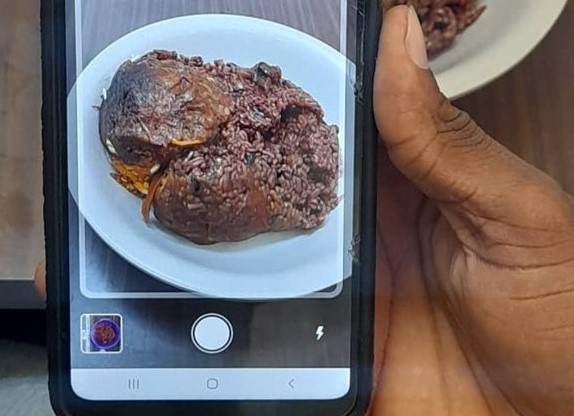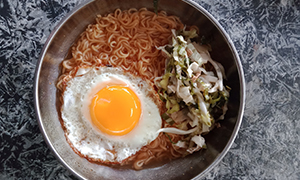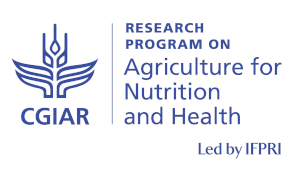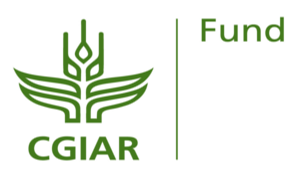Unhealthy diets are a critical global concern while dietary measure methods are time-consuming and expensive. There is limited evidence that phone-based interventions can improve nutrition data collection and dietary quality, especially for adolescents in low- and middle-income countries.
The project involves an interdisciplinary collaboration between the International Food Policy Research Institute, Plant Village at Penn State University, the University of Ghana, the National Institute of Nutrition and the Thai Nguyen National Hospital in Vietnam.
The Plant Village Food Recognition Assistance and Nudging Insights (FRANI) is a new artificial intelligence (A.I.)-assisted mobile phone application that aims at closing that evidence gap by being able to recognize foods, track food-group consumption, provide diet-related statistics, and gamified nudges to improve food consumption.
In 2021 the Nudging for Good Project team validated FRANI for dietary assessment in adolescent girls in Ghana and Viet Nam against weighed records, the gold standard for dietary assessment, and the standard multi-pass 24 hour-recall method. Results show that using FRANI to measure daily nutrient intake performs equally well, and in many cases even better than the 24hr-recall. In addition to the validation study, two randomized pilot studies have assessed the feasibility of FRANI and its effects on food choices of adolescent girls in Ghana and Viet Nam.
This work was undertaken by the Nudging for Good Project team including contributions from: Noora Aberman, Gabriel Ador, Alejandra Arrieta, Vicentia Adatze, Boateng Bannerman, Bianca C. Braga, Frank Doyle, Gloria Folson, Rohit Gangupantulu, Aulo Gelli, Nga Thu Hoang, David Hughes, Phuong Nam Huynh, Naureen Karachiwalla, Annalyse Kehs, Bastien Koch, Pete McCloskey, Phuong H Nguyen, Giordano Palloni, Marie Ruel, Lan Mai Tran, Trang Huyen Tran, Duong Thuy Trương, Sawudatu Zakariah-Akoto, and Hoodies pte. ltd for software development.











